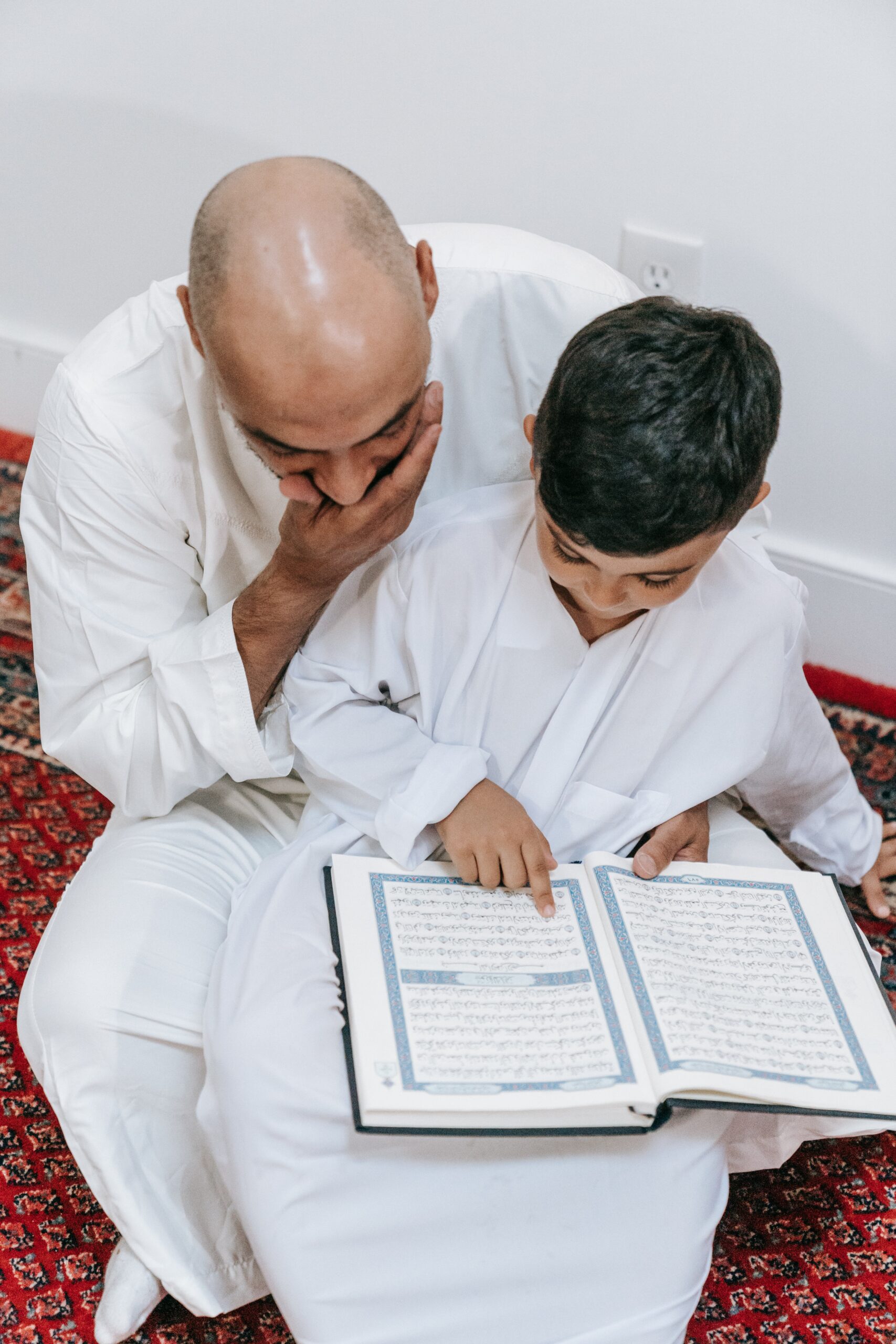- +923333697391
- contact@quranxpert.com
Islamic Values in Multicultural Society: Parenting

Hey there, curious explorer! You must be proud of your culture and faith while making awesome friends worldwide. “Sometimes, it’s tricky to fit in when you’re different from your friends. Knowing how to be true to your beliefs can be confusing when everyone seems different. Are you ready to learn excellent ways to celebrate who you are while making new friends? Join the adventure and start being the wonderful, kind friend you already are!
Introduction
In a multicultural society, embracing Islamic values fosters understanding and harmony among diverse individuals. “Islamic values,” derived from the teachings of Islam, provide a moral compass that guides Muslims in their daily lives. These values, such as compassion, honesty, and respect, are the foundation for a peaceful and inclusive society.
Understanding Islamic Values
To comprehend the significance of Islamic values, it is essential to grasp their Definition and principles. “Islamic values” encompass a set of beliefs and behaviours that align with the teachings of Islam. The basic teachings of Islam, found in the Quran and Hadith, emphasise virtues such as Justice, humility, and forgiveness.
Islamic Values in Parenting
Islamic values play a pivotal role in shaping parenting practices within Muslim households. Parents aim to raise compassionate and responsible individuals by instilling Islamic values in their children. Teaching children kindness and compassion encourages them to treat others with empathy and generosity.
Fostering honesty and integrity in children is another crucial aspect of Islamic parenting. Emphasising the value of truthfulness helps children develop strong moral character and integrity, leading to a more trustworthy and ethical society.
Islamic Values and Respect for Others
In a multicultural society, it is vital to promote respect for people of different cultures and beliefs. Islamic values emphasise the importance of tolerance and acceptance. Muslim teachings encourage and appreciate diversity, promoting fair treatment of all individuals.
Promoting respect for others
Fosters a sense of unity and harmony within society, creating a space where people from different backgrounds can coexist peacefully. By embracing Islamic values, individuals contribute to a culture of inclusivity and understanding.
Islamic Values and Building a Harmonious Society
Islamic values extend beyond individual interactions and have a broader impact on society. Muslims are actively encouraged to engage in their communities and positively contribute to society. In doing so, they strive to promote peace, Justice, and social responsibility.
Encouraging community engagement
enables individuals to work together towards common goals, fostering a sense of belonging and cooperation. By upholding Islamic values, Muslims become agents of positive change, striving to establish a harmonious society.
Understanding Islamic Values
Definition and principles of Islamic values
Islamic values encompass a set of moral principles that guide the behaviour and beliefs of Muslims. Derived from the teachings of Islam, a religion followed by over a billion people worldwide, these values hold significant importance. The principles of Islamic values revolve around the idea of submission to God’s will and seeking righteousness in all aspects of life.
Islam promotes “compassion,” which entails showing kindness and empathy towards others, especially those in need. “Honesty” is another fundamental Islamic value emphasising truthfulness and integrity in one’s actions and words. Additionally, “justice” is highly regarded in Islam, encouraging fairness and equality.
Key teachings of Islam
Derived from the Quran, the holy book of Muslims, and the Hadith, the words and deeds of the Prophet Muhammad (peace be upon him), the essential teachings of Islam shape the beliefs and practices of Muslims. In this way, the Quran and Hadith serve as primary sources of guidance for Muslims, providing them with a comprehensive framework for their faith and actions. These teachings guide various aspects of life, including personal conduct, relationships, and societal interactions.
Islam emphasises the importance of “love for humanity,” encouraging Muslims to treat all individuals with compassion, no matter their origin or views and respect. “brotherhood/sisterhood” is central to Islam, promoting unity and cooperation among Muslims. Furthermore, Muslims are actively encouraged to seek knowledge within Islam, as education holds high value and is viewed as a means of personal growth and societal development.
Islamic Values in Parenting
Role of Islamic values in shaping parenting practices
Islamic values are crucial in guiding and shaping parenting practices within Muslim families. These values provide a moral framework that helps parents instal positive character traits and behaviours in their children. Parents can create a nurturing and spiritually grounded environment by integrating Islamic values into parenting.
Parents prioritising “Islamic values” in their parenting strive to raise children who exhibit patience, gratitude, and humility. They emphasise the importance of “obedience to God” and teach children to make decisions based on moral principles rooted in Islamic teachings. Islamic values also promote the concept of “family unity” and encourage parents to foster strong bonds within the family unit.
Teaching children kindness and compassion
One of the central teachings of Islam is the value of “kindness and compassion” towards others. Muslim parents emphasise these qualities in their children, teaching them to be considerate, empathetic, and helpful towards others. Children learn to treat everyone with respect and dignity by nurturing kindness and fostering harmonious relationships.
Parents often encourage their children to engage in “charity” and “community service,” teaching them the importance of giving back to those in need. Through these actions, children develop a sense of social responsibility and learn to empathise with the challenges faced by others.
Fostering honesty and integrity in children
Islamic values emphasise the significance of “honesty and integrity” in personal conduct. Muslim parents strive to instill these values in their children from a young age. They teach children the importance of telling the truth, being trustworthy, and fulfilling commitments.
Parents guide in making ethical choices and emphasise the consequences of dishonesty. By cultivating a culture of honesty and integrity, parents lay the foundation for children to grow up as individuals of strong moral character, earning the trust and respect of others.
Incorporating “Islamic values” into parenting practices helps shape children’s behaviour, character, and worldview.
Islamic Values and Respect for Others
Promoting respect for people of different cultures and beliefs
Islamic values actively promote an appreciation and value for the diversity that exists in society by encouraging “respect for people of different cultures and beliefs” among Muslims. Islam teaches that everyone deserves respect and fair treatment regardless of their background or beliefs.
Muslims are reminded of the Quranic verse that states, “O mankind, indeed We have created you from male and female and made you peoples and tribes that you may know one another” (Quran 49:13). This verse highlights the importance of embracing diversity and seeking knowledge about different cultures and beliefs.
Emphasising tolerance and acceptance
Islamic teachings regard “tolerance and acceptance” as values, and Muslims are encouraged to treat others kindly, even when they hold different opinions or beliefs. Islam teaches that differences among people are part of God’s plan and should be respected.
The Prophet Muhammad (peace be upon him) said, “Whoever believes in Allah and the Last Day should be generous and accommodating to his guest” (Sahih Bukhari). This Hadith emphasises the importance of welcoming and accepting others, regardless of their background.
Islamic Values and Building a Harmonious Society
Encouraging community engagement and social responsibility
Islamic values play a significant role in building a “harmonious society” by encouraging community engagement and social responsibility. Encouragement is given to Muslims to participate in their communities and contribute positively to society actively.
Through “community engagement,” individuals work together towards common goals, fostering a sense of belonging and cooperation. Muslims are encouraged to actively volunteer their time and skills to help those in need, promoting social welfare and equality.
Islam emphasises the concept of “social responsibility,” where individuals are accountable for their actions and have a duty to contribute to the betterment of society. By upholding Islamic values, Muslims become agents of positive change, striving to establish a harmonious community for all.
Promoting peace and Justice in society
Islamic values strongly emphasise promoting “peace and justice” in society. Encouragement is given to Muslims to be peacemakers and actively seek peaceful resolutions to conflicts, avoiding violence and aggression.
In Islam, treating others fairly and equitably is an urged practice, upholding the fundamental principle of pure justice. Islam teaches that everyone, regardless of their background or beliefs, is entitled to their rights and dignity. Justice and fairness lead to a society where individuals coexist harmoniously and resolve conflicts through dialogue and understanding.
By promoting peace and justice, individuals actively contribute to establishing a society where everyone respects each other’s rights and lives in harmony and mutual respect.
Conclusion
In conclusion, Islamic values are crucial in shaping individuals and society. They promote respect, compassion, and Justice, fostering a harmonious and inclusive environment in a multicultural society. By embracing and promoting Islamic values, we can create a better world where people coexist peacefully, appreciating and celebrating diversity. Let us strive to live by these values and contribute to building a society rooted in kindness, fairness, and mutual respect.
"Charting Your Life's Course: Embracing Quranic and Sunnah Guidance for Profound Spiritual Fulfillment"
In the articles within this series, you will discover invaluable insights and practical wisdom, enabling you to navigate life's challenges and choices while aligning your journey with the profound guidance of the Quran and Sunnah. Let us illuminate the path to spiritual fulfillment together. These articles unite individuals from across the globe who follow Islam into a cohesive fellowship built upon shared values and concerns.

Importance of Tajweed
Perfecting Your Quranic Recitation

Quran for All
Accessible Wisdom and Guidance”

Modest Fashion Trends
Introduction to Modest Fashion Trends for European Muslims

Islamic Travel
Europe's Halal Heaven: Best Islamic Travel Destinations in Europe with Halal Food, Prayers, &Accommodations

Islamic Parenting
Nurturing Confident and Righteous Children: Islamic Parenting Techniques in Europe
Quran Xpert operates as an autonomous entity, led by a committed team of skilled professionals.
Quick Links
Get in Touch
- +923333697391
- contact@quranxpert.com
Copyright © 2023 quranxpert.com All rights reserved.
